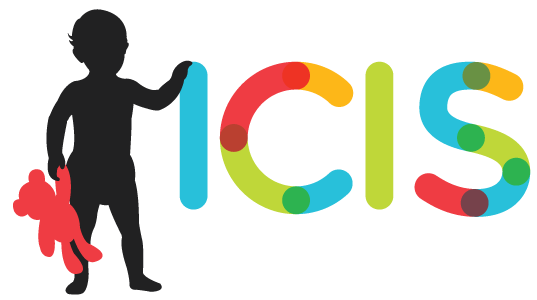ICIS Elections
All members in good standing will have received a link directly to the email on their membership account for the electronic vote. Only members who are fully paid for the current year (2024 or 2025 membership expiry) are eligible to vote in the election. Please review the information below and vote before the election closing date of April 8, 2024.
If you have not received the voting link, please contact the Secretariat to confirm your membership.
ICIS members are invited to participate in the election process by nominating candidates or standing for the upcoming board elections. The Nomination Committee will consider all nominations and create a slate of candidates for our open positions.
Positions Available
(1) President-Elect
(1) Board Member representing North America
(1) Board Member with no geographic representation
Board members are expected to:
-
- Commit to attending quarterly board meetings
- Join and actively participate in board committees (e.g., membership, awards, undergraduate)
- Actively work toward ICIS strategic goals
Duties of the Board
The duties of the Board are to conduct the business of the Society, including but not limited to:
-
- Formulating policy and referring policy decisions to the Membership for approval
- Selecting chairpersons for standing committees and other committees established by the Board
- Soliciting nominations and preparing election slates for Board Member elections and confirming election results
- Selecting the Editor of any journal publications sponsored by the Society
- Serving on a committee that meets every 3 months ahead of the quarterly board meeting
- Entering into contracts with external organizations to assist with the management of the Society. Such an agreement will require a majority vote by the Board for any contracts and amendments
- Ongoing efforts as needed in running the business of the society in activities including but not limited to input on fund raising efforts, creating new initiatives and assisting with existing initiatives for undergraduates, graduates, early career scholars, and the membership at large (e.g., awards, webinars and workshops), and outreach to and collaboration with other relevant societies
The terms begin July 2024 and end July 2030.
2024 Elections Timeline
Nominations open: February 14
Nominations close: February 28
Elections open: March 18
Elections close: April 8
Nomination Process
You must be an ICIS member (current dues paid) to nominate a colleague (they must also be a member) or self-nominate.
Nominations must be received by February 28 at 5:00pm PDT to the ICIS Secretariat via email.
Although a letter is not required, the following candidate information must be provided:
-
- Name
- Institution/Affiliation
- Phone number
- Position considered
Should the candidate be chosen to be on the ballot, they will be asked to provide a short 50-word bio and statement on what they will bring to the ICIS board for inclusion in the election documents.
Thank you for your support in providing strong ICIS leadership through your nominations.
ICIS President-Elect Nominees
The President-Elect position is a six-year term. The incumbent will serve two years (2024 – 2026) as President-Elect, two years as President (2026 – 2028) and two years as Past-President (2028 – 2030).
Members have one vote for the President-Elect role.
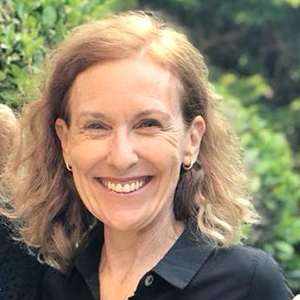
Ronny Geva
Bar Ilan University, Israel
With a passion for advancing our understanding of infancy, I bring a strong foundation in attention, language, and neurodevelopment, shaped by a BA and MA in communication disorders from TAU. As a Fulbright scholar, I pursued a Ph.D. in clinical neuropsychology at CUNY, focusing on newborn self-regulation. Currently a full professor and pro-chair in the Psychology department at BIU, I’ve established a globally recognized lab, which integrates developmental psychologists, neuroscientists, and neurobiologists from diverse socio-cultural backgrounds, pioneering translational research in infant development. Having trained with ICIS leaders in New York and served as an associate editor of the Infancy Journal, I am aligned with the mission of ICIS. During my board term, we will propel ICIS forward with actions that reflect our commitment to cutting-edge research, foster a vibrant, open-minded, multi-disciplinary community, and work together to cultivate a broad approach that prioritizes early development for lifelong well-being around the world.
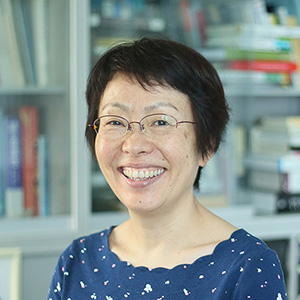
Reiko Mazuka
Riken Center for Brain Science, Japan
For the past twenty years I have been a PI in the field of developmental psychology at the Riken Center for Brain Science. My research centers on the why children acquire language with remarkable consistency despite the great diversities found across languages and their cultural contexts. I was initially drawn to this field by a realization that its foundations were almost entirely drawn on English language studies, which skewed their generalizations in ways that failed to account for acquisition patterns found in, for example, my own native language of Japanese. As a graduate student at Nagoya U., Edinburgh U. and Cornell U., and then as a tenured faculty member of Duke U., I was able to establish the contribution that research on Japanese infants could bring to my field. Since joining Riken I have been able to extend our comparative studies to languages including Thai, Korean and Chinese, along with French and Italian. I served on the executive board of ICIS from 2016 to 2022. If elected, I hope to hold the ICIS conference in Japan.
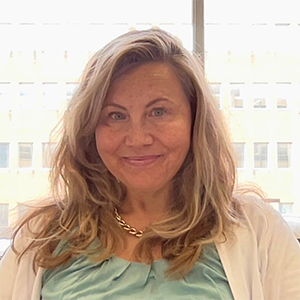
Jessica A. Sommerville
University of Toronto, Canada
I would be honored to serve as President-Elect of the International Congress of Infant Studies. ICIS has served as a cornerstone of my scholarship dating back to my first conference as a graduate student in 2002 and continuing across my subsequent experiences as a member of the 2022 Ottawa Program Committee, a mentor to Founding Generation summer fellows, via my organization of pre-conferences, and through my contributions to various out-reach efforts.
If elected, I would invigorate ICIS’ commitment to diversity in members, theories, methods, and disciplines, via training sessions on novel methods, workshops aimed at promoting small and large-scale collaborations, and through resources and webinars to increase entry into our science by those from historically underrepresented backgrounds and cultures. I would strengthen out-reach efforts, by promoting interactive events between parents, caregivers, and scientists, both online and at our biennial conference. I would also galvanize existing partnerships, and generate new, long-standing partnerships, aimed at extending the reach of ICIS’ knowledge dissemination, and further solidifying the future financial health of ICIS.
ICIS North America Member Nominees
The North America member position will represent the North American region of our international society.
Members will have one vote for this position.
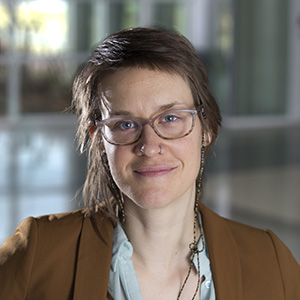
Kaya de Barbaro
The University of Texas at Austin
I conduct interdisciplinary research that bridges developmental psychology and computer science, and my work spans the domains of social, cognitive, sensorimotor, and physiological development. A guiding principle of my research is that characterizing the real-time dynamics of naturalistic interactions will provide access to the proximal mechanisms of development. As such, from my earliest work I have developed a unique methodological toolkit to capture and analyze the dynamics of mother-infant activity using high-density data in free-flowing interactions. My current interest is to characterize the processes of maternal mental health and infant social-emotional development in everyday contexts. While sensors have made high-density multimodal data increasingly easy to collect, few tools exist for working with and making sense of such large and complex datasets. Thus, another contribution of my work has been to develop and share resources and best practices for developmentalists interested in high-density data. This includes the open-source algorithms for automated detection of parent-child behavior and context from wearable sensors, including models to automatically detect infant distress and parent-child holding behaviors.
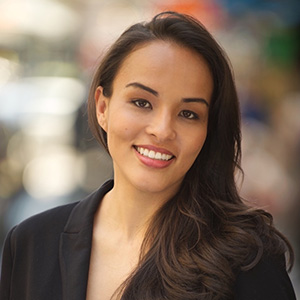
Natalie Hiromi Brito
New York University, USA
Dr. Natalie Hiromi Brito is an Associate Professor of Developmental Psychology at New York University (NYU) and Director of the Infant Studies of Language and Neurocognitive Development (ISLAND) lab. Her research explores how both proximal factors (e.g., caregiver mental health, caregiver-child interactions) and distal influences (e.g., social policies) impact brain and behavioral development, with the goal of understanding how to best support caregivers and create environments that foster healthy child development. Dr. Brito is the recipient of numerous grants and awards, including recognition from APA (Boyd McCandless Award), APS (Rising Star), and CIFAR (Global Scholar). Her wider service experience includes membership on NIH study sections, multiple journal editorial boards (including Infancy), previous International Society for Developmental Psychobiology (ISDP) board member, and current Secretary for APA Division 7 (Developmental). As part of the ICIS board, she looks forward to expanding initiatives surrounding diversity, equity, and accessibility.
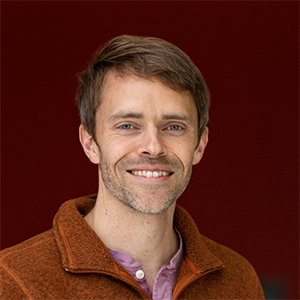
Casey Lew-Williams
Princeton University, USA
I’m a professor in the psychology department at Princeton University, USA. With graduate students, postdocs, and undergraduates in the Princeton Baby Lab, we study how infants learn from the dynamics of their natural communicative environments. One of my goals on the ICIS board is to establish sustainable scientific exchange with developmental scientists from all over the place (in tandem with efforts in ManyBabies). Another goal is to encourage respect of the combinatorial potential of descriptive, experimental, computational, and neuroimaging approaches to advance our field.
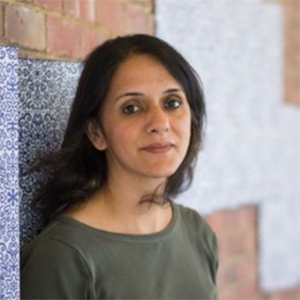
Leher Singh
National University of Singapore, Singapore
I am on the faculty at the National University of Singapore. My research focuses on multilingual development in infancy. I am also the Program Director for Developmental Science at the National Science Foundation (NSF) and Senior Advisor for Partnerships in the Directorate for STEM Education (NSF). At NSF, I have led several initiatives to broaden participation and increasing accessibility to the agency and developed a new set of strategic priorities for the Developmental Science program.
I serve as Associate Editor for Diversity, Equity, and Inclusion at Developmental Science and Associate Editor at the Journal of Cognition and Development. I am currently Program Co-Chair for ICIS 2024, which has been an incredibly enjoyable experience! I would bring to this position a deep commitment to developing new initiatives for the Society, substantial knowledge of funding for society activities and strategic initiatives, and significant editorial and publications experience.
ICIS Member At Large Nominees
The member at large position will represent our society without a geographic specificity.
Members will have one vote for this position.
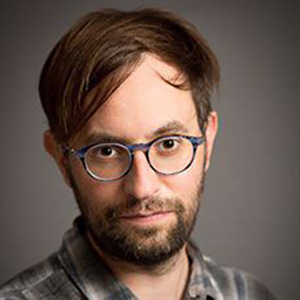
Andrew J. Bremner
University of Birmingham, UK
I am an infancy researcher and have been publishing my findings since 2001. I have used behavioural and physiological experimental methods to pursue knowledge about how infants come to perceive their multisensory worlds, with a focus on the development of touch perception, multisensory body representation, and perceiving the self in relation to external space. I also conduct research on perceptual and cognitive development more widely, investigating the development of cognitive control, perceptual style, object perception, spatial representation and attention. If elected to the ICIS board I am keen to advance our inclusivity and diversity as a society and scientific community, with focusses on supporting the development of the next generations of infancy researchers, the involvement of parents infants and children in shaping infancy research, the translation of discovery research into real world impact, and the inculcation of a supportive and inclusive approach to best practice in open science methods.

Jean-Rémy Hochmann
CNRS-Institut des Sciences Cognitives Marc Jeannerod, France
I am a specialist in infant cognition and cognitive development. After working in this field for 20 years, both in Europe (Italy, Spain, France) and the US, I am now the founding director of the Lyon BabyLab at CNRS in France. My work is designed to focus on fundamental questions, asking how preverbal infants think and how their thinking changes with the advent of language. Over the past years, I have developed strong collaborations with local hospitals to search for early behavioral biomarkers of developmental disorders, and to examine development in preterm infants. As a developmental scientist, I believe we need science to inform investment policies in young infants and children. My goal in joining the ICIS board is to advance the science of infancy and disseminate our discoveries to policy makers, with an eye toward increasing the diversity of the infants we study and the next generation of researchers.
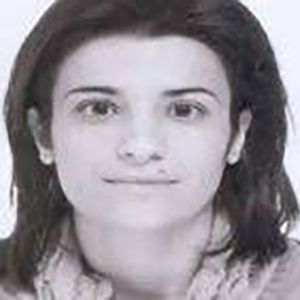
Theano Kokkinaki
University of Crete, Greece
I am Professor of Developmental Psychology at the Department of Psychology of the University of Crete (Greece) and Head of the same Department. I completed my PhD at the Department of Psychology of the University of Edinburgh under the supervision of Professor Colwyn Trevarthen. My research interests are focused on the study of infant development with emphasis on spontaneous naturalistic dyadic and triadic interactions of infants with Significant Others cross-culturally and in different contexts. Recently, my research is focused on the study of correlations between behavioral aspects of dyadic interactions of premature infant with Significant Others (emotional coordination) and biological indices (heart rate variability and melatonin) in relation to infant neurodevelopment. My potential key focus areas in the course of board term (July 2024 – end July 2030) will be to advance leading – edge research on the development of infants, to value diversity and inclusion, to disseminate findings in places all over the world, to educate researchers and stakeholders and to inform the public and policy makers on best practices for infant learning and development.
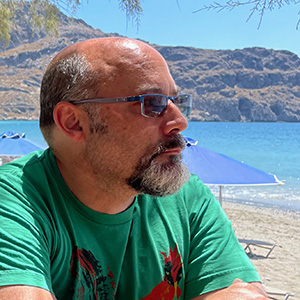
John P. Spencer
University of East Anglia, UK
My first conference talk was in 1992 at the 8th International Conference on Infant Studies in Miami, FL. It was a fabulous experience and hooked me on infant research. Since then, I have been an active member of ICIS and am eager to help lead the society forward. My passions resonate with ICIS strategic goals including promoting our science in a global and inclusive manner. I am also keen to work toward de-carbonising our society in the face of climate change. I am a Professor of Psychology at the University of East Anglia in Norwich, UK. I received a Ph.D. in Experimental Psychology from Indiana University in 1998. I am the recipient of the 2003 Early Research Contributions Award from SRCD, and the 2006 Robert L. Fantz Memorial Award from the American Psychological Foundation. My work focuses on early brain development, working memory, executive function, and word learning.
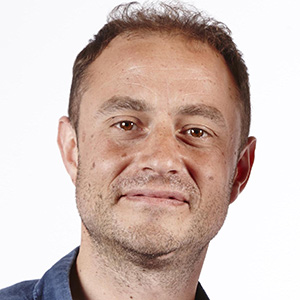
Sam Wass
University of East London, UK
Sam Wass, Ph.D. is Professor of Early Years Neuroscience at the University of East London, UK, leader of the BabyDevLab (www.uelbabydev.com), and father to a 4-year-old son and a 2-year-old daughter. His research uses cutting-edge techniques including naturalistic dual EEG/fNIRS and home wearables to measure how real-world environments influence stress and concentration in typical and atypical populations (ASD, ADHD, anxiety preterm birth). Sam also works as a consultant with early years providers, commercial organisations and media. Sam currently services on the Program Committee for ICIS 2024 and would be delighted to continue to serve the society as a Board Member.
